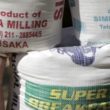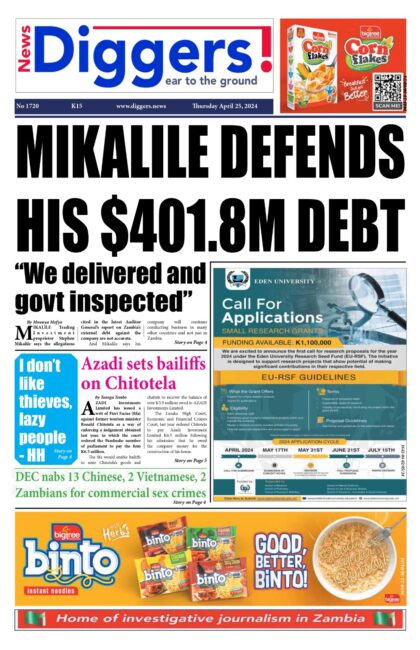Agriculture Minister Michael Katambo says government is finalising a Memorandum of Understanding with the Democratic Republic of Congo (DRC) for exports of maize and other crops.
And Katambo has claimed that current national food stocks are sufficient to last until the next harvest season.
He has, however, acknowledged consumption pressure considering that Zambia “only produced enough to meet our domestic needs”.
Delivering a ministerial statement to parliament, Tuesday, Katambo said the neighbouring DRC had been requesting for more maize from the government.
“Of course, we are finalising a Memorandum of Understanding with the Democratic Republic of Congo engaging the Ministry of Foreign Affairs, the Ministry of Commerce, Trade and Industry, and the Ministry of Agriculture to see the needs and recommendations in the MoU on how we can service the Democratic Republic of Congo. Of course, Zambia will be more than glad once this MoU is finalized to start exporting grain to the Democratic Republic of Congo. Of course, the Democratic Republic of Congo has been engaging our government requesting for more grain purchase by DRC,” Katambo said.
He assured that maize exports to the DRC would not deprive the local market of the required grain.
“The House may wish to note that for an estimated population of 17.6 million people, the total maize required for human consumption amounts to 1, 558, 339 metric tonnes with 409, 008 metric tonnes required for industrial use. The total requirement for both human and industrial use is 1, 967, 347 metric tonnes. With this scenario, it is very clear that the country can survive until the next harvest season provided illegal exports or smuggling, which is a major threat to our national food security, is controlled. What I mean is that the actual situation on the ground has evolved from the time I announced the results. We have serious threats to our food situation which, if not dealt with, can result into national food shortages,” Katambo said.
He emphasized the need for government to deal with the food security threats and further assured the nation that the prevailing mealie meal prices were temporary.
“Mr Speaker, due to the consumption pressure on the maize commodity, and also the fact that we have only produced enough to meet our domestic needs, it will be prudent for government to recognize and deal with the threats of our food security. The first threat is the smuggling of maize into our neighbouring countries such as the Democratic Republic of Congo. The second threat which we have witnessed is panic buying and holding of maize by some traders in the belief that the country is running out of maize stocks. This has also had a major impact on mealie meal prices. The third threat, Mr Speaker, is that we have pockets of food shortages in some parts of the country. This has arisen because of the reduced production of maize in areas that were severely hit by droughts and floods in Southern, Western, and some parts of Eastern and Lusaka Provinces. This has created an even distribution of maize and mealie meal in the country which also has had an impact on mealie meal prices. I would like to assure the nation that the prevailing mealie meal prices are temporary,” Katambo said.
Meanwhile, Katambo said the Food Reserve Agency’s K111 per 50 kg bag price of maize was already at a subsidized rate.
“Through community sale, government is subsidizing the sale of maize. Internally or within the country, maize producers or the private sector or the traders can sell maize in any of the districts or in any areas that they wish. So there are no restrictions within the country. Of course, the Ministry of Defence [and] the Ministry of Home Affairs is aware that they are supposed to allow traders who are supposed to move grain from one area into another area without any inconvenience. Traders are free to trade in any area internally without being inconvenienced,” said Katambo.













One Response
We need leaders with wisdom and a heart for the people.